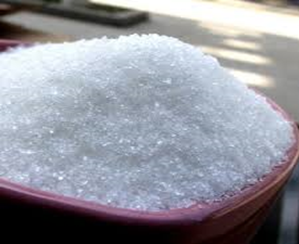Description
Technical Specifications of Antimonium Tartrate Potassium
-
Chemical Name: Potassium Antimony Tartrate (Antimonium Tartrate Potassium)
-
Molecular Formula: K(SbO)C₄H₄O₆·½H₂O
-
Molecular Weight: 333.91 g/mol
-
CAS Number: 28300-74-5
-
Appearance: White to off-white crystalline powder
-
Odor: Odorless
-
Solubility: Soluble in water, slightly soluble in alcohol
-
Melting Point: Decomposes on heating
-
Assay (Purity): ≥ 99% (on dry basis)
-
pH (5% solution): Approx. 4.0 – 5.5
-
Packaging: Typically available in 500 g, 1 kg bottles, or custom bulk packaging
-
Storage: Store in tightly sealed containers, in a cool, dry, and well-ventilated place
-
Shelf Life: Up to 2 years under proper storage conditions
Applications of Antimonium Tartrate Potassium
1. Laboratory and Research Use
Used as a reagent in chemical analysis and complexometric titration, Antimonium Tartrate Potassium plays a key role in determining metal ions and studying redox reactions.
2. Ceramics and Glass
It serves as a fining agent to remove bubbles during glass production and as an additive in ceramics to achieve specific color and texture effects.
3. Veterinary and Parasiticidal Applications
Although limited, it is sometimes used in veterinary medicine to treat parasitic infections such as schistosomiasis or leishmaniasis, especially in non-human applications.
4. Electroplating and Metallurgy
Antimonium Tartrate Potassium is used in electroplating processes to achieve specific metallic finishes, especially in gold and silver plating.
5. Historical and Niche Medicinal Uses
Historically, it was employed as an emetic and anthelmintic, although modern medicine has mostly replaced it due to toxicity concerns. Its legacy, however, is significant in pharmacological history.
Benefits of Antimonium Tartrate Potassium
-
✅ High purity and solubility for precise laboratory and industrial use
-
✅ Versatile applications across chemistry, ceramics, and metallurgy
-
✅ Reliable reagent for complex reactions and analysis
-
✅ Cost-effective in specific manufacturing processes
-
✅ Stable when stored properly
Safety and Handling Guidelines
Antimonium Tartrate Potassium is classified as toxic if ingested or inhaled. It may cause irritation to the skin, eyes, and respiratory tract. Long-term exposure can lead to serious health issues including organ damage. Always wear protective gloves, goggles, and lab coats while handling the substance. In case of spills or exposure, follow proper chemical spill procedures and consult the Safety Data Sheet (SDS). Avoid discharge into the environment.
Conclusion
Antimonium Tartrate Potassium is a specialty chemical compound valued for its chemical reactivity, mordant properties, and oxidizing capabilities. Though its pharmaceutical use has waned, its importance in research, ceramics, metallurgy, and electroplating remains significant. When used responsibly and stored correctly, it delivers consistent and efficient performance across scientific and industrial domains.





![Copper Sulfate Monohydrate [CuSO₄·H₂O] Powder – Cu 34% Min](https://mjrdchemhome.com/wp-content/uploads/2025/04/camachem_-_copper_sulfate_monohydrate_4_-300x300.jpg)

